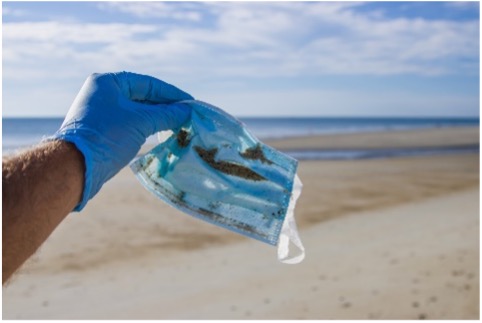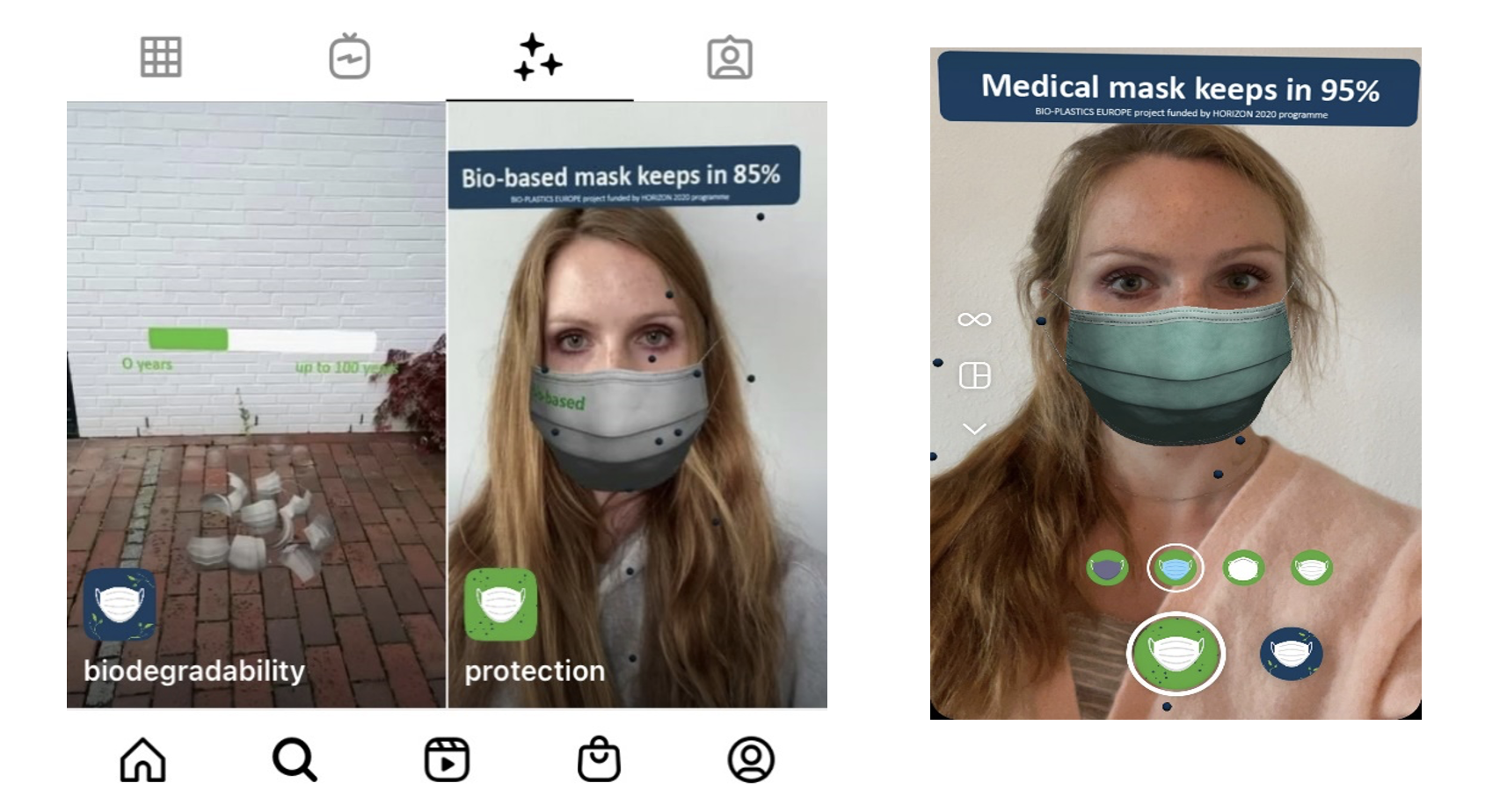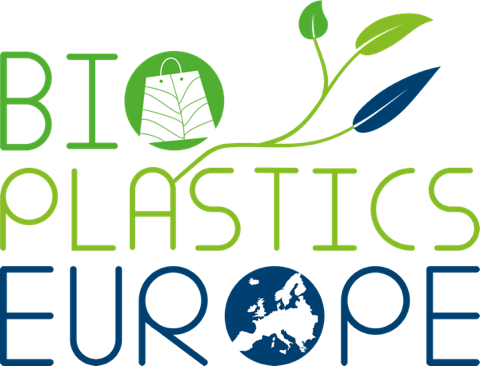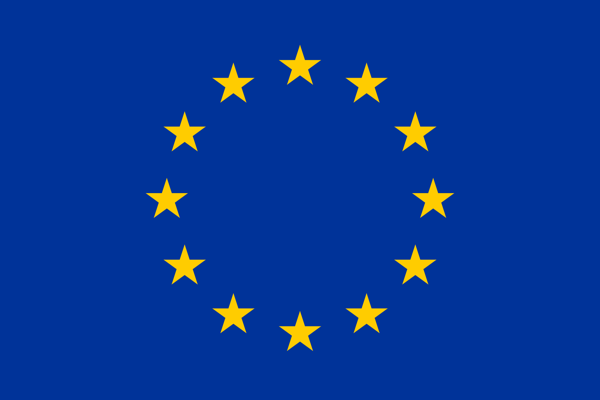Face masks – safe, but not sustainable
By Maren Fendt, Hamburg University of Applied Sciences, Germany

Image 1: Improper disposal of face mask. Photo by Brian Yurasits on Unplash
BIO-PLASTICS EUROPE is not only working in the lab, but also dedicated to raising awareness of waste man-agement strategies of various plastic products – such as face masks. Looking back at that start, it is difficult to believe that the worldwide use of face masks started only one and a half years ago: In April 2020 - at the very start of the COVID-19 pandemic - the World Health Organization (WHO) recommended only certain groups to use professional face masks: health care professionals, people experiencing symptoms and people taking care of sick individuals. Healthy individuals were only advised to perform hand hygiene and apply social and physical distancing. The reasoning behind this decision was mainly a shortage of professional equipment as well as the risk of mask-misuse. In the following weeks, this recommendation was highly debated by national health authorities. The crucial point of those debates was the protective effect (effectiveness) of masks against the SARS-CoV-2 virus, even though there was not much evidence available yet. Against the recommendation of the WHO, many countries made it compulsory for the general population to wear masks in public spaces by May 2020. Today, there is enough evidence to confirm that community-wide use of masks can have a measurable impact on SARS-CoV-2 transmission rates.
At the same time, however, it is also well documented that the amount of waste associated with the use of masks, and in particular improper disposal, will have a long-term negative impact on the environment. Studies suggest that approximately 75% of the COVID-19 related waste will end up in landfills and in the ocean. More precisely, it is estimated that 1.5 million face masks may enter the ocean within a year. The environmental harm related to the incorrect disposal of face masks is far-reaching – it may take 450 years for a medical mask to fully biodegrade under natural conditions. Those masks will slowly degrade into micro-plastics which will not only damage flora and fauna, but also affect human health.
In view of these consequences, the choice of face mask should be influenced not only by the degree of effectiveness, but also by the degree of sustainability, particularly regarding their biodegradability dimension. Therefore, BIO-PLASTICS EUROPE provided easy-to-understand information featuring both aspects. We have developed two Facebook and Instagram filter effects which have just been released on our social media channels. These filters illustrate the effectiveness and biodegradability of different types of masks, according to scientific literature, but in an entertaining way. With this innovative outreach, we hope to support people reflect on their daily mask choice as well as the correct way of disposal.

Image 2: The Instagram filter visualizes biodegradability and protection level of biobased masks vs conven-tional masks, here is a typical medical mask.
You can read more about those filters and how they were developed here.
The filters are available on Facebook and you can try them:


